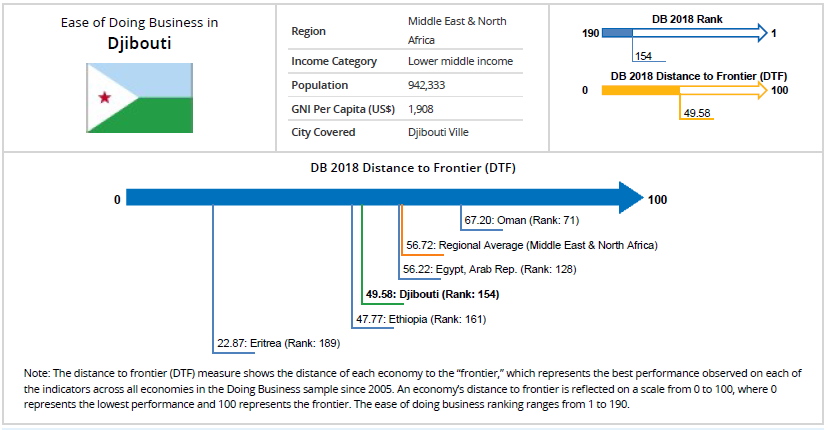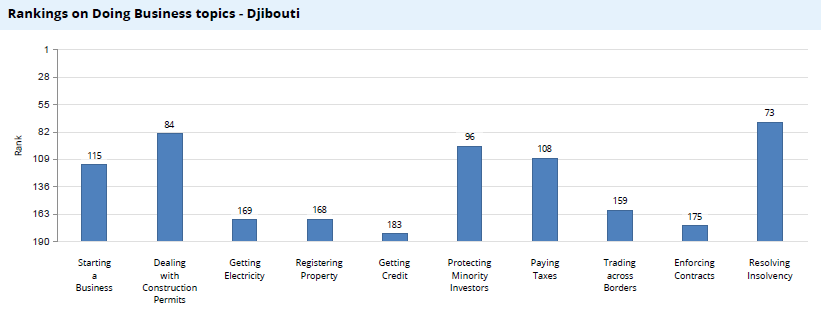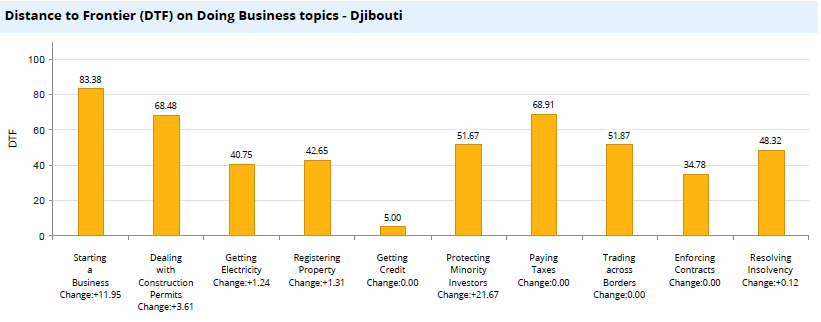Article Index
About Doing Business
The Doing Business project provides objective measures of business regulations and their enforcement across 190 economies and selected cities at the subnational and regional level.
The Doing Business project, launched in 2002, looks at domestic small and medium-size companies and measures the regulations applying to them through their life cycle.
Doing Business captures several important dimensions of the regulatory environment as it applies to local rms. It provides quantitative indicators on regulation for starting a business, dealing with construction permits, getting electricity, registering property, getting credit, protecting minority investors, paying taxes, trading across borders, enforcing contracts and resolving insolvency. Doing Business also measures features of labor market regulation. Although Doing Business does not present rankings of economies on the labor market regulation indicators or include the topic in the aggregate distance to frontier score or ranking on the ease of doing business, it does present the data for these indicators.
By gathering and analyzing comprehensive quantitative data to compare business regulation environments across economies and over time, Doing Business encourages economies to compete towards more e cient regulation; o ers measurable benchmarks for reform; and serves as a resource for academics, journalists, private sector researchers and others interested in the business climate of each economy.
In addition, Doing Business o ers detailed subnational reports, which exhaustively cover business regulation and reform in di erent cities and regions within a nation. These reports provide data on the ease of doing business, rank each location, and recommend reforms to improve performance in each of the indicator areas. Selected cities can compare their business regulations with other cities in the economy or region and with the 190 economies that Doing Business has ranked.
The first Doing Business report, published in 2003, covered 5 indicator sets and 133 economies. This year’s report covers 11 indicator sets and 190 economies. Most indicator sets refer to a case scenario in the largest business city of each economy, except for 11 economies that have a population of more than 100 million as of 2013 (Bangladesh, Brazil, China, India, Indonesia, Japan, Mexico, Nigeria, Pakistan, the Russian Federation and the United States) where Doing Business, also collected data for the second largest business city. The data for these 11 economies are a population-weighted average for the 2 largest business cities. The project has bene ted from feedback from governments, academics, practitioners and reviewers. The initial goal remains: to provide an objective basis for understanding and improving the regulatory environment for business around the world.
The distance to frontier (DTF) measure shows the distance of each economy to the “frontier,” which represents the best performance observed on each of the indicators across all economies in the Doing Business sample since 2005. An economy’s distance to frontier is re ected on a scale from 0 to 100, where 0 represents the lowest performance and 100 represents the frontier. The ease of doing business ranking ranges from 1 to 190. The ranking of 190 economies is determined by sorting the aggregate distance to frontier scores, rounded to two decimals.




